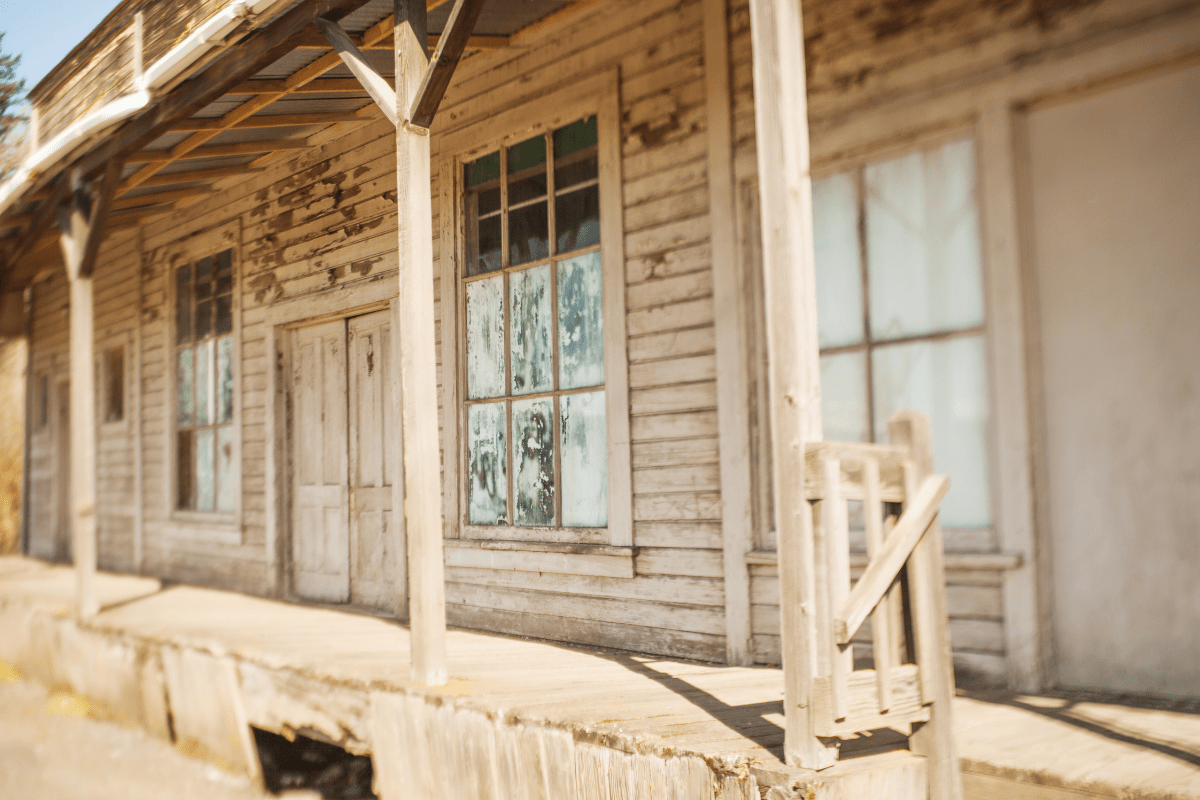Looking for a home in Vancouver, Washington? You're joining thousands of buyers navigating a market that's finally catching its breath after years of chaos, with median prices hovering around $510K and homes actually staying on the market for more than five minutes.
Why Vancouver's housing market deserves your attention
Let's address the elephant in the room… or should I say, the elephant across the river. Yes, Vancouver sits in Portland's shadow, but that's actually its superpower. You get Oregon's job market without Oregon's income tax, which explains why so many Portland workers are willing to brave that morning bridge commute that can stretch your patience from 6:00 to 8:30 AM.
The market's showing interesting personality quirks right now. While those cute 1-2 bedroom starter homes are declining 3-9% year-over-year (turns out people really did want home offices), the 4-5 bedroom family fortresses are appreciating 3-16%. It's like the housing market's way of saying "go big or go… wait for prices to drop."
What makes Vancouver particularly intriguing is its neighborhood diversity. You can find everything from Rose Village's sub-$400K options to Felida's $840K+ estates where the lots are measured in acres and the HOA probably has opinions about your mailbox color. The city's 99.2% inventory increase sounds impressive until you realize it's still historically tight, meaning you'll still face competition, just maybe from three other buyers instead of thirteen.
Fisher's Landing leads the family-friendly pack
Fisher's Landing has become Vancouver's answer to "where should we move for the schools?" This east Vancouver neighborhood commands median prices between $519K and $575K, but parents seem happy to pay for what they're getting.
The crown jewel here is Fisher's Landing Elementary, which ranks #1 among Vancouver elementary schools with 57% math proficiency and 64% reading proficiency. Those numbers might not sound Nobel Prize-worthy, but compared to the district average of 31% in math, it's practically Harvard for the elementary set. The homes themselves average 2,200 square feet and were mostly built between 1994 and 2015, so you're not dealing with that special 1970s charm of aluminum wiring and harvest gold appliances.
What daily life actually looks like
Living in Fisher's Landing means your Saturday errands involve the triumvirate of suburban shopping: Fred Meyer, Target, and New Seasons Market, all within the neighborhood's sprawling 16,000-acre footprint. Your Portland commute will run 30-55 minutes during peak hours, depending on whether the bridge is up and how many people decided to merge at the last possible second.
The neighborhood operates on suburban rules, meaning a Walk Score of 45 that basically translates to "you're driving everywhere, friend." HOA fees typically run $80-$85 monthly, though some subdivisions have no HOA at all if you're the type who considers lawn height suggestions a form of tyranny. Homes here sell fast, averaging just 15-25 days on market, so if you're the "I need to think about it" type, Fisher's Landing will teach you decisive action real quick.
Salmon Creek and Felida: Where suburban dreams get expensive
Moving north to Salmon Creek, the prices jump to $658K-$735K median list prices, and suddenly you're in semi-rural territory just 6 miles from downtown. The homes here average 2,250 to 3,810 square feet because apparently everyone in Salmon Creek needs a dedicated room for their hobbies.
What you're really paying for is the lifestyle. Picture this: you're a medical professional (the neighborhood's practically full of them thanks to Legacy Salmon Creek Medical Center), you want excellent schools, and you like the idea of suburban tranquility without actually moving to the middle of nowhere. At $305-$325 per square foot, you're paying premium prices, and homes sit on the market for 65-104 days because buyers at this price point don't impulse-buy houses like they're grabbing gum at the checkout line.
Felida takes luxury seriously
Then there's Felida, where median prices range from $675K to $840K+ and the homes come with their own zip codes. Okay, not really, but when you're dealing with custom homes on half-acre to full-acre lots, you start to understand why.
The Reserve at Lake River offers gated luxury living for those who've always wanted to tell people they live in a gated community. Felida Elementary posts impressive stats with 58% math and 69% reading proficiency, and the neighborhood scores 98.4% higher than Washington's average for family-friendliness, which I imagine involves a complex algorithm of sidewalk quality, ice cream truck frequency, and how many neighbors actually wave back.
Here's what makes Felida special beyond the price tags:
- Pine Crest Golf Course for your retirement practice
- Lake River waterfront properties
- Executive and professional occupations at 58.9%
- Median household incomes that make tax accountants smile
- Limited inventory that keeps values climbing
Downtown Vancouver's billion-dollar transformation
Remember when downtown Vancouver was where you went for jury duty and not much else? Those days are fading faster than your aunt's Facebook political posts. The Waterfront Vancouver development is pumping over $1 billion into 32 acres of former industrial land, creating the kind of mixed-use urban living that city planners dream about.
Downtown median sale prices run $508K to $565K, with homes selling in about 15 days. The neighborhood achieves Vancouver's highest Walk Score of 72, earning the coveted "Very Walkable" designation, which means you can actually walk to get coffee without people assuming your car broke down.
The waterfront changes everything
The waterfront already has 1,500+ residential units occupied, with Block 21 adding 285 apartments to the mix. The Grant Street Pier extends over the Columbia River, and you've got riverfront tasting rooms where you can pretend you understand wine while watching the sunset. The AC Marriott and Hotel Indigo brought boutique hotel vibes to a city that really needed them.
The Gateway Project starts construction in early 2025, promising affordable housing options… though "affordable" in the context of waterfront property is relative. There's also Esther Short Park hosting farmers markets where you can buy $7 tomatoes and feel good about supporting local agriculture.
One important note: southwest neighborhoods including parts of downtown see higher property crime rates, with a 1 in 10 chance of crime victimization versus 1 in 20 in northeast areas. It's not exactly Gotham City, but maybe don't leave your bike unlocked while you grab that artisanal latte.
Affordable neighborhoods that don't require selling organs
Not everyone's shopping in the half-million-dollar range, and Vancouver gets that. Rose Village emerges as the most budget-friendly option with median prices between $247K and $378K. Sure, 54% of properties are rentals and the schools won't win any awards, but if you're trying to get into the market without emptying your 401k, Rose Village starts looking pretty attractive.
The neighborhood scores a Walk Score of 45-50, meaning it's "somewhat walkable" if you're optimistic about walking. Good freeway access helps compensate, and the mix of housing types from apartments to single-family homes means you've got options. Think of it as Vancouver's "transitional neighborhood," which is realtor-speak for "it might gentrify, or it might not, place your bets."
Hazel Dell and Cascade Park offer middle ground
Hazel Dell, technically unincorporated Clark County, offers two distinct areas. Hazel Dell South hits $452K median while Hazel Dell North reaches $473K. These areas feature mature tree canopies and established character, plus potentially lower taxes since they're unincorporated. You still get Vancouver addresses, so your mail doesn't confuse people.
Cascade Park represents another value play at around $385K median prices, though it's seen a 10% year-over-year decline. The average home dates to 1985, so expect some "vintage" features, but the central location with easy I-205 and SR-14 access makes up for the occasional wood paneling discovery. Plus, you're near Trader Joe's, and proximity to affordable wine and frozen mandarin chicken is basically a lifestyle amenity.
Schools: The good, the bad, and the "we're working on it"
Let's talk schools with the honesty they deserve. Vancouver Public Schools ranks #208 out of 307 Washington districts, with district-wide averages of 31% math proficiency and 44% reading proficiency. Those numbers might make you reach for the private school brochures, but wait.
Vancouver has some genuine gems. Vancouver School of Arts and Academics ranks #12 statewide with 80% reading proficiency and a 95% graduation rate. Vancouver iTech Preparatory sits at #19 statewide with its STEM focus and 90% graduation rate. These are choice schools accepting students regardless of neighborhood, though competition is fierce because every parent who Googles "Vancouver schools" finds the same data you just did.
The neighborhood disparity is real. Minnehaha Elementary manages just 35% math proficiency with 59% economically disadvantaged students, while Felida Elementary reaches 58% math proficiency with only 19% economically disadvantaged. The lesson? Research specific schools, not just districts.
Transportation: More than just that bridge everyone complains about
Vancouver's overall Walk Score of 41 screams "car-dependent," and honestly, embrace it. This isn't Portland with its bikes and streetcars. This is Vancouver, where parking is plentiful and your car is basically another family member.
The big news is the Interstate Bridge replacement, which secured $2.1 billion in federal funding. Construction should run 2027 through the 2030s, promising to eliminate those 250+ annual bridge lift delays that currently make commuters question their life choices. The new bridge will include MAX light rail extension from Portland, fundamentally changing Vancouver's transit game.
Currently, The Vine BRT serves Fourth Plain Boulevard and Mill Plain, with the Yellow Line to Salmon Creek beginning construction in 2025. Morning rush runs 6:00-8:30 AM with I-5 speeds dropping 55-71%, while evening rush tortures northbound travelers from 4:30-7:00 PM.
Pro tip: neighborhoods along I-205 often provide faster Portland access since you avoid the Interstate Bridge bottleneck entirely. Fisher's Landing and East Vancouver residents smugly sail past while I-5 commuters sit in traffic contemplating podcasts about productivity.
The true cost of homeownership in Vancouver
Let's talk money beyond the mortgage. Vancouver's effective property tax rate hits 0.93%, above Washington's 0.88% average but below the national 1.02%. On a $534,900 home, you're looking at roughly $5,981 annually. Clark County ranks fourth highest statewide for property taxes, but remember… no state income tax. Portland workers often save more in income tax than they pay in property tax.
HOA fees vary wildly. Quail Park in Salmon Creek charges just $10 monthly (basically coffee money), while Columbia Ridge Marina demands $410 monthly but includes utilities. Many established neighborhoods have no HOA at all, perfect for those who view community guidelines as suggestions rather than commandments.
The city's 2045 Comprehensive Plan pushes the "20-minute neighborhood" concept, potentially increasing density near transit corridors. Translation: your quiet street might get busier, but your property value could benefit from the increased development interest.
Investment potential and market outlook
The waterfront development alone expects a 6x return on its billion-dollar investment, making early buyers look like geniuses in retrospect. Downtown's urban transformation, Fisher's Landing's family appeal, and the Columbia Tech Center corridor all show strong potential.
For comparison, nearby Camas posts $719K-$852K medians with 67% of homes selling within 30 days, showing what happens when tech money meets good schools. Vancouver offers similar trajectories at lower entry points.
Interest rates near 7% have cooled buyer enthusiasm, but potential Federal Reserve adjustments could shift dynamics. The 2025 forecast suggests modest 3-4% appreciation, which beats inflation without creating another feeding frenzy.
Making your Vancouver neighborhood decision
Vancouver's neighborhood diversity means there's genuinely something for everyone, whether you're stretching for a Rose Village starter home or splurging on Felida luxury. The key is aligning neighborhood selection with your actual priorities, not what you think they should be.
If schools drive your decision, Fisher's Landing and Felida deliver, though you'll pay for the privilege. If urban walkability matters more than yard space, downtown's transformation offers legitimate city living. If you just need an affordable entry point with potential upside, Rose Village and Cascade Park provide options without requiring financial gymnastics.
The market's transition from seller-dominated to balanced conditions means you might actually have time to think before making an offer. Use it wisely. Research specific schools, drive neighborhoods during commute hours, and calculate total costs including taxes and HOA fees. Vancouver rewards buyers who do their homework, offering value propositions unavailable across the river in Portland's higher-tax environment.
With the Interstate Bridge replacement promising better connectivity and billion-dollar investments reshaping downtown, Vancouver's poised for continued growth. Whether you're seeking suburban comfort, urban energy, or affordable potential, Vancouver's neighborhoods stand ready to welcome you home… just maybe practice that bridge commute first.





